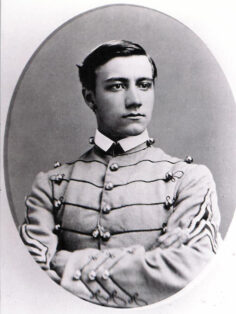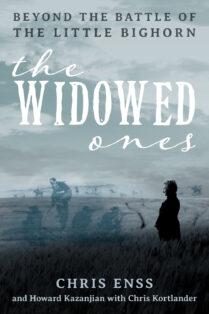Enter now to win a copy of
The Widowed Ones: Beyond the Battle of the Little Bighorn

Seven, Seventh Cavalry officers’ wives became widows on June 25, 1876. Six of those ladies lived out the rest of their years in constant communication with one another. They visited each other in their homes and traveled together to various tributes for their husbands. In person and in letters, the widows discussed the difficulties of carrying on without their spouses, the financial hardships they were facing, and how best to handle the public criticism of the Seventh Cavalry and General Custer. The bond the women shared proved to be what they needed to survive. Each admitted to family or in their memoirs the crucial necessity of their friendships.
Grace Harrington, wife of Lieutenant Henry Moore Harrington, chose not to stay in close touch with the other widows. Unlike Elizabeth Custer, Annie Yates, Maggie Calhoun, Molly McIntosh, Nettie Smith, and Eliza Porter, the remains of Grace’s husband could not be found, nor could any personal effects be identified that indicated where he last was on the battlefield. There was no information at all regarding his whereabouts or if he had survived the savage fight. He was listed as missing in action. It was a declaration Grace couldn’t accept.
According to a letter written to Elizabeth Custer from Nettie Smith in December 1876, “Mrs. Harrington is adrift with no resolve. She has kindly declined any effort to be consoled. As her husband is the only one of the soldiers missing without a trace, she believes there is a chance he lived through the ordeal and must be rescued.”
An article from the July 7, 1876, edition of the Inter-Ocean listing the history of the deceased troops noted the likelihood Lieutenant Harrington was alive was extremely remote. “…[O]f course, there is a bare possibility that this officer may have escaped,” the article read, “but men of experience in the wars of the borders, when asked a question on the subject, shrug their shoulders and say he had better have been killed. The shrug and the remark suggest nameless horrors in connection with his name.”


